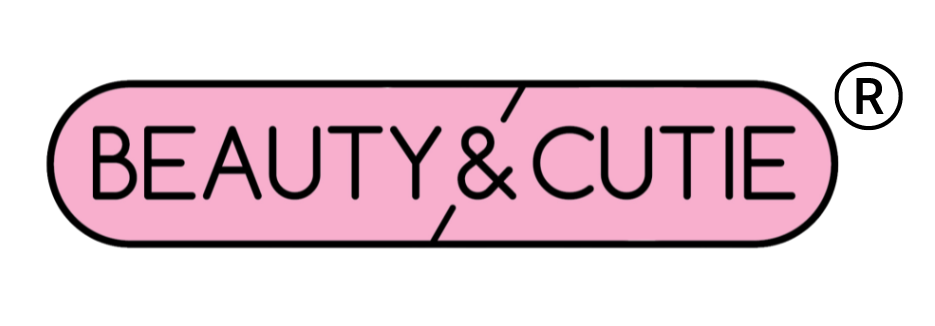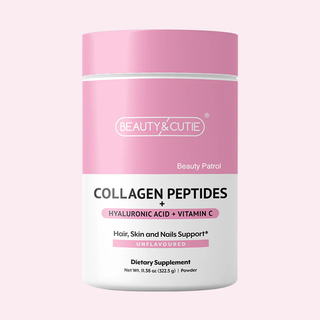Are you a female wondering at what age hair growth stops? It's a question many women have, and it's important to understand the facts. In this article, we will explore when hair growth slows down and stops in females. You may take better care of your hair and make wise choices concerning your hair care regimen if you comprehend this procedure. Consequently, if you're eager to learn more about female hair development, keep reading.
At What Age Does Female Hair Growth Typically Stop?
Female hair development normally continues throughout a woman's life, though as she gets older, it could slow down or become less dense. Since it differs from person to person, there is no set age at which hair growth ends production entirely for all women. In contrast, women's hair frequently begins to thin down or fall out as they approach their 40s or 50s. This is often caused by changes in hormones and getting older. You should be aware that although your hair development may slow down as you age, it typically doesn't cease. Your hair may grow and maintain strength as you age with proper hair care and a healthy lifestyle. Seeing a dermatologist or trichologist is the best thing to do if you're afraid about hair loss or thinning. They can give you personalized advice and treatment choices based on your needs.
What Is The Hair Growth Cycle?
The hair growth cycle is a continuous process that occurs in several stages. Understanding these stages can help you understand when and why hair growth may slow down or stop.
- Anagen phase: This is the active growth phase of hair follicles. During this phase, the cells in the hair follicles divide rapidly, and the hair shaft grows. On average, this phase lasts for about 2-7 years.
- Catagen phase: This is a transitional phase where hair growth stops. It lasts for about 2-3 weeks. During this phase, the hair follicle shrinks, and the hair shaft is cut off from its blood supply.
- Telogen phase: This is the resting phase of the hair growth cycle. The hair follicle is quiescent during this phase for 2-4 months. The hair falls out at the conclusion of this phase, and new hair strands start to grow in its place.
- Exogen phase: This is the shedding phase. It occurs when the new hair grows and pushes the old hair out of the follicle. On average, about 50-100 hairs are shed daily during this phase.
Factors That Can Affect Hair Growth in Women
Many different things can affect how a woman's hair develops. The development of hair follicles may be aided or hindered by several factors. Consider some of the following crucial factors:
- Age: As women age, the rate of hair growth naturally slows down. This is due to changes in hormone levels, particularly a decrease in estrogen. Estrogen helps promote hair growth, so a decline in its levels can result in thinner and slower-growing hair.
- Hormonal changes: Hormonal changes throughout a woman's life can impact hair growth. This includes puberty, pregnancy, and menopause. During pregnancy, for example, increased estrogen levels can cause hair to appear thicker and grow faster.
- Genetics: Genetics can have an impact on hair growth patterns, including the pace and thickness of hair. You may be more prone to experiencing the same if your parents or other close family members have thin or slowly growing hair.
- Nutritional deficiencies: A balanced diet is crucial for healthy hair growth. Biotin, zinc, vitamins, C, and E, among other nutrients, are essential for encouraging hair development. Deficiencies in these nutrients can lead to weakened hair follicles and slower growth.
- Stress: Stress that is ongoing can thwart the cycle of hair growth, which results in hair loss. The body's stress-induced hormone cortisol can prevent hair follicles from operating normally.
- Medical conditions: Certain medical conditions can affect hair growth in women. Conditions like thyroid disorders, autoimmune diseases, and scalp infections can disrupt the hair growth cycle and result in hair loss.
- Hair care practices: Certain hair care practices can damage the hair follicles and hinder hair growth. This includes excessive heat styling, tight hairstyles, and harsh chemical treatments. You should take good care of your hair and abstain from actions that might harm it.
Signs That Hair Growth May Be Slowing Down
There are some frequent signs of decreased hair growth. These indicators can indicate a decrease in hair growth or an underlying issue. Signs include:
- Thinning hair: If your hair is getting thinner, especially around the head or temples, it may be slowing down. Hormones, genetics, and nutrition can trigger hair loss.
- Slow hair growth: Your hair may be growing slower if you notice it. If your hair takes longer to grow, it may be slowing down.
- Increased hair shedding: While it's typical to lose 50-100 hairs each day during the shedding phase of the hair development cycle, excessive hair shedding or clumps of hair may indicate delayed hair growth. Stress, hormonal imbalances, and dietary inadequacies can cause excessive hair loss and baldness.
- Lack of new hair growth: If you haven't seen new hair development in regions where you usually have hair, your hair growth may be halting. If your hairline, temples, or crown haven't grown new hair in a while, it may indicate a slowdown.
- Changes in texture and quality: Changes in hair texture and quality may indicate slowed hair growth. Dryness, brittleness, and dullness are examples. Slower hair growth affects hair health and length, causing these texture and quality alterations.
Tips For Promoting Healthy Hair Growth
- Eat a balanced diet: Healthy hair requires vitamins, minerals, and nutrition. Eat protein, iron, omega-3 fatty acids, and biotin. Eggs, seafood, almonds, and avocados are examples.
- Avoid excessive heat and styling damage: Excessive heat from styling tools like flat irons and curling irons can damage your hair and hinder its growth. Limit the use of heat styling tools and always use a heat protectant spray before styling.
- Be gentle when brushing and styling: Be careful when detangling your hair and avoid aggressive brushing. Use a wide-toothed comb or a brush with soft bristles to minimize breakage and damage.
- Protect your hair from environmental damage: The sun, wind, and pollution can all take a toll on your hair health. Use UV protection products and wear a hat or scarf to shield your hair from harmful UV rays and environmental pollutants.
- Avoid tight hairstyles: Pulling your hair back tightly into ponytails, buns, or braids can cause tension and lead to hair breakage. Opt for looser hairstyles or alternate between different styles to minimize damage.
- Regularly trim your hair: Regular trims help to get rid of split ends, which can impede hair growth. Aim to get your hair trimmed every 6-8 weeks to maintain healthy ends.
- Take care of your scalp: A healthy scalp is essential for healthy hair growth. Keep your scalp clean and free from buildup by regularly washing it with a gentle shampoo. Massage your scalp to promote blood circulation and stimulate hair follicles.
- Avoid harsh chemical treatments: Chemical treatments like perms, relaxers, and color treatments can damage your hair and hinder its growth. If possible, opt for natural alternatives or consult a professional stylist who uses gentle and less damaging products.
Conclusion
In conclusion, maintaining healthy hair growth requires a combination of proper care and lifestyle choices. This post will help you build healthy hair. Take care of your hair, scalp, and environment. Additionally, make sure to manage stress levels, get enough sleep, and stay hydrated to support overall hair health. If needed, consider consulting with a healthcare professional or dermatologist for additional guidance and potential treatments. With consistent care and attention, you can achieve and maintain healthy, beautiful hair.
Final Thoughts
Discover the secret to timeless beauty with Beauty and Cutie's collagen powders! Designed to boost collagen and packed with essential nutrients, our formula promotes glowing skin, strong hair, and healthy nails. Feel incredible inside and out with Beauty and Cutie as your trusted partner in beauty.
Sources
- https://www.healthline.com/health/beauty-skin-care/hair-stopped-growing
- https://drbest.in/12-factors-affecting-hair-health/
- https://www.medicalnewstoday.com/articles/326764
*These statements have not been evaluated by the Food and Drug Administration. This product is not intended to diagnose, treat, cure or prevent any diseases.


